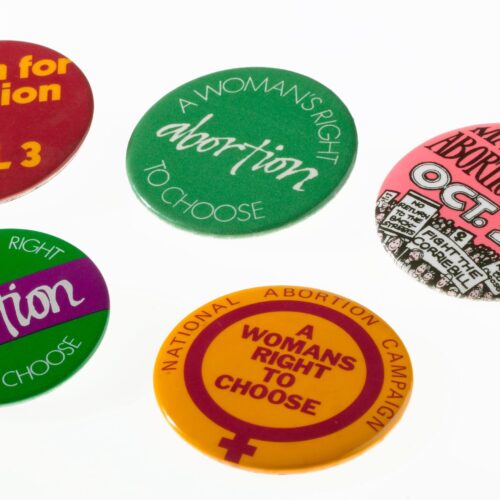

The… women on the early ALRA committee were similar in background and outlook. Most of them were active members of the Labour Party, were active in the field of birth-control, and had been involved in the suffrage movement. Most of them were also free-thinkers, who saw organized religion as the main obstacle to the full emancipation of women.
Madeleine Simms and Keith Hindell, Abortion Law Reformed (1971)
The Abortion Law Reform Association was formed in 1936 to campaign for the legalisation of abortion in the UK. In its efforts towards reasoned, compassionate reform, many humanists were involved with ALRA from its earliest stages, notably Stella Browne, Janet Chance, Alice Jenkins, and Dora Russell, and many more have supported reforms in the wider fields of reproductive health and women’s rights. The Ethical Union (now Humanists UK) became affiliated with ALRA in 1953.
It is elementary justice that a woman should be allowed to be the mistress of her own body.
Miss B.A. Henderson to the Birkett
Committee on Abortion
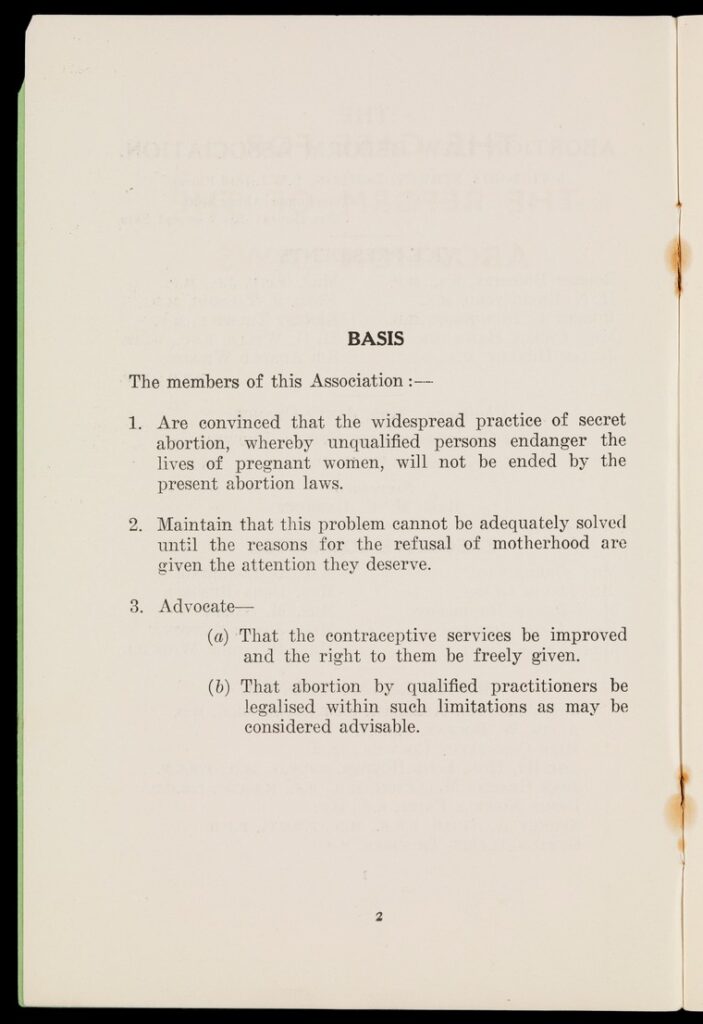
During the 19th and early 20th centuries, a succession of laws were introduced which restricted access to legal abortion in the UK, and served to increase the sense of taboo surrounding the subject. These legislations did not mean an end to unwanted pregnancies, but instead imperiled the health and lives of those affected. In being forced to seek ‘back-street abortions’ or dangerous abortifacients, many lives were lost or permanently damaged.
The first organisation to pass a resolution calling for abortion’s legalisation was the Conference of Co-operative Women in 1934, and many working women joined the Abortion Law Reform Association, formed two years later. The ALRA was established in 1936 by Stella Browne, Janet Chance, and Alice Jenkins. All three were freethinking feminists, passionate about the rights of all women – regardless of class or social status – to access safe abortions, and obtain rational advice on matters of reproductive health. Browne was also actively involved in the British Society for the Study of Sex Psychology, an organisation founded in 1914 which aimed to discuss matters of sex and sexuality openly, and with an eye on law reform.
In 1937, the government established the Birkett Committee, to explore the circumstances surrounding abortion and consider whether changes to the law should be made. Stella Browne presented evidence, opening with the statement:
If abortion were necessarily fatal or injurious, I should not now be here before you.
STELLA BROWNE TO THE BIRKETT
COMMITTEE ON ABORTION, 17 NOVEMBER 1937
Like Diane Munday, later to be an active champion of the ALRA, Browne used personal testimony in a powerful call to increase the rights and freedoms of all. In 1939, the Committee recommended that the law allow for abortion in cases where the life or health of the mother was at risk, but the outbreak of war prevented its implementation.
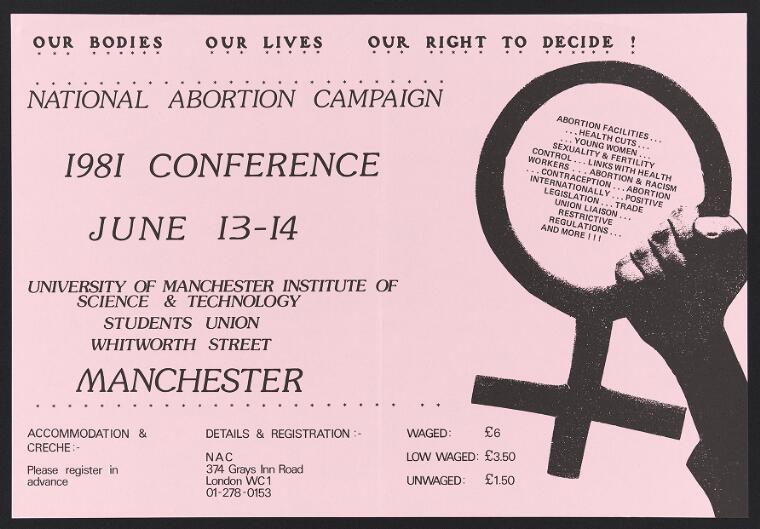
Throughout the 1950s and 1960s, changes in societal attitudes and increased access to birth control assisted in increasing support for abortion reform. Despite this, illegal and dangerous abortions were still taking place, with tragic consequences. ALRA actively campaigned to support MP David Steel’s private member’s bill to legalise abortion, which was passed on 27 October 1967. The Abortion Act 1967 came into effect in April 1968, legalising abortions carried out by registered practitioners on certain grounds. It did not apply to Northern Ireland.
In subsequent years, and ever since its passage, the Act has been challenged by a number of ‘pro-life’ groups and individuals. In 1975, the National Abortion Campaign (NAC) was established to protect the 1967 Act and campaign for its improvement and widening. Both the ALRA and the NAC actively worked to ensure the Act’s implementation, and resist attempts to restrict it. The NAC and ALRA merged in 2003 to form Abortion Rights: ‘the national pro-choice campaign’.
As a matter so deeply intertwined not only with concepts of personal freedom and bodily autonomy, but also with the adoption of a compassionate and evidence-based approach, it is little wonder that humanists have always stood on the side of progressive reform in reproductive rights. Notable examples of humanist campaigners include Dora Russell, who championed women’s rights to access safe abortion, and Diane Munday, whose years of tireless activism have been underpinned by her humanism and humanity.
Today, Humanists UK continues to campaign in favour of women’s sexual and reproductive rights, believing that contraception and high-quality, comprehensive relationships and sex education should be widely and freely available. They have worked to extend abortion access in Northern Ireland, and campaigned to remove abortion from criminal law in the UK.

The Cambridge Ethical Society was established in 1888, inspired by the London Ethical Society (formed two years earlier). It aimed […]
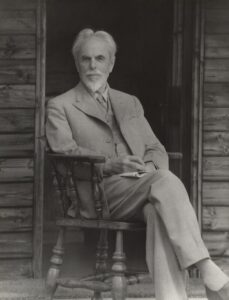
But however little it conforms or tenders allegiance, no life worth having can be isolated from the lives of others. […]

Good writing excites me, and makes life worth living. Harold Pinter Harold Pinter was one of the 20th century’s most […]
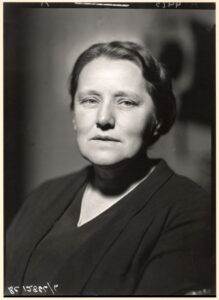
It lies within our power, if we so desire it, to make the familiar world we inhabit more worthy of […]